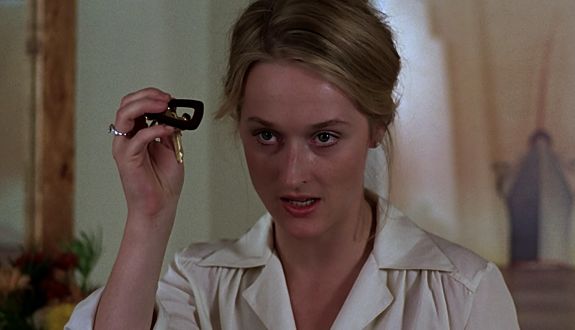
This Tweet thread about how Willy Wonka & the Chocolate Factory is a the best law school movie without any lawyers got me thinking about other movies that bring up legal issues without being about law school or lawyers. This post is going to cover some best low-key legal movies.
1. Back to the Future
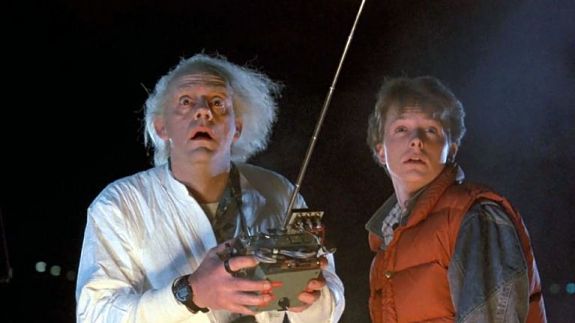
If you’ve seen Back to the Future, you will likely remember the scene where Marty McFly plays “Johnny B. Goode” at the school dance. For those of you who haven’t seen it, I’m not even going to attempt a recap of the movie. The salient point is this: Marty goes back in time to 1955 and plays an iconic Chuck Berry song three years before the song is released in 1958. While he’s performing, Chuck Berry’s cousin holds up a phone so that Chuck can hear the song and subsequently compose it. As many others have noted, it is slightly problematic to have the white Marty McFly become the true “creator” of one of the most famous black rock-and-roll hits in history. But, that aside, let’s pretend for a second that Marty wanted to get litigious. Now, I’m no copyright expert, but I imagine there could be some pretty interesting arguments over who exactly created the song given the time travel elements. While there aren’t a lot of different areas of law in Back to the Future, it is one of my favorite movies and this particular issue puts it high on the list.
2. The Incredibles
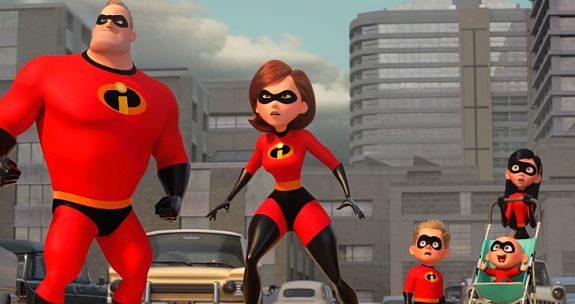
The Incredibles is one of my favorite animated movies of all time, so I’m going to stretch the rules a little bit. Technically, the legal issues are explicit in the film: superheroes are getting sued for injuring people in the course of their various rescue efforts (the issue also comes up a little bit in Hancock, but who cares about that movie?). So, would such a suit be justified? Well, as it happens, the default rule is that once someone engages in rescue efforts, they have a duty not to perform the rescue negligently (unless there are good Samaritan laws preventing rescuers from being sued). As a result, if Mr. Incredible saves someone from impending doom or prevents the destruction of a building but, in the course of doing so, negligently causes injury to the person or damage to someone else’s property, then he could indeed be held civilly liable for breaching the duty of care he undertook in deciding to perform a rescue. Conversely, there is no duty to rescue someone, so if Mr. Incredible had just decided to let Bomb Voyage blow everything up, he couldn’t be held civilly liable for failing to intervene.
3. Toy Story
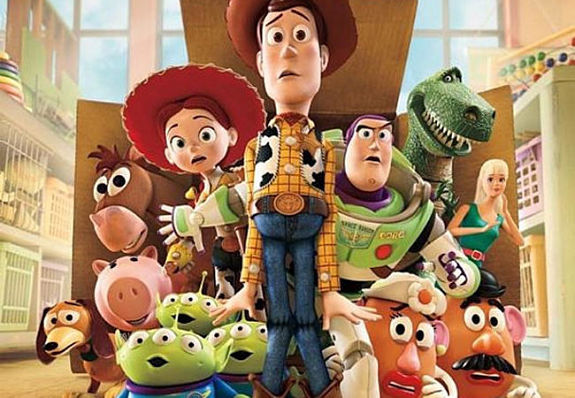
So, this one is a little generic, in that it could apply to a variety of animated movies. But the legal issue here is whether the toys have constitutional rights. For background (for the .0001% of people who might not have seen this movie), Toy Story is about the secret lives of toys once humans are no longer observing them and they are free to go about their lives. Let’s assume for purposes of this discussion that they’re made in America. Would the 14th Amendment (which grants citizenship to “all persons born or naturalized in the United States”) apply to them? I fully realize it’d be a stretch of personhood, but at the same time, the toys appear sentient and rational, capable of love and of dying, and in possession of the other hallmarks of personhood. If they were afforded rights, could they, say, bring an action against Sid for cruel and unusual punishment? Could Woody sue to prevent himself from being trafficked internationally to the collector? Is it a form of wrongful incarceration to keep the toys in plastic cases?
4. Inception
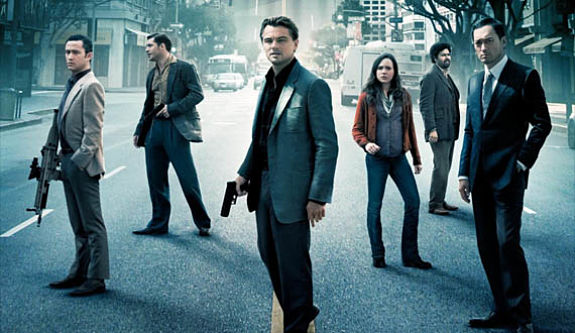
The plot of Inception, much like the plot of Back to the Future, is not particularly conducive to an abbreviated recitation. The key point is this: technology has made it possible to infiltrate other people’s dreams in order to steal information or implant an idea. Now, the means by which the team of infiltrators induces the dream state is often nefarious — through kidnapping or some other means — and not really the point of this discussion. Rather, the issue is what crime or tort would someone commit by infiltrating the mind of another? I believe the most easily translatable offense would be an invasion of privacy. People whose dreams were infiltrated could bring suit against the infiltrators for invading their private space (their mind) and then for disclosing information contained therein. I’m sure there could also be a fruitful discussion about writing a criminal statute that would appropriately encompass the issue here.
So, there you have it. Once you start learning the law, you start spotting legal issues everywhere. If you haven’t gone to law school yet, enjoy this time, where not everything is viewed through the lens of civil or criminal liability!




